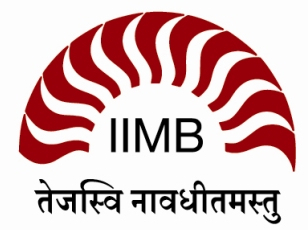Corporate Governance in India
with Vijaya Marisetty, Associate Professor, IIMB
Corporate governance is a critical aspect of modern businesses with their reliance on the smooth functioning of principal-agent relationships. There are multiple stakeholders involved like equity holders, debt holders, customers, employees and society. Balancing the interests of all parties is a challenging task. This is even more so in developing economies like India where markets and regulatory structures are yet to mature, and where business groups are prevalent. In this interview with Vijaya B. Marisetty, faculty in Finance and Control area at IIM Bangalore with active research interests and publications on corporate governance, we seek to understand the concept of corporate governance, the challenge of the business and family ownership structures, effectiveness of Indian regulatory framework and other external mechanisms of ensuring good governance in the Indian companies.
Conclusion
Given the complex task of managing the interests of multiple stakeholders, it is important for a firm to first define their order of precedence. This will allow the firm to be governed according to its vision and objectives. In developing countries, the uncertain nature of the external environment and underdeveloped capital markets leads to the creation of family business groups, since group firms can prop, co-insure and support each other, thus giving them a better chance to survive than standalone firms. However, there are concerns that promoters of group firms may engage in tunnelling of funds, as was tried unsuccessfully in the Satyam case. Also, given the prevalence of cross-holdings by group firms, an investor should bear in mind that there are both firm-level and group-level risks to consider, when investing in such firms. Moving to governance mechanisms, market reactions are an effective external mechanism of governance, since they directly and instantly affect the value of the listed firm. Regulation is often a reactive measure and no matter how good on paper, it still needs to be enforced. Hearteningly, India has been improving on the regulatory front. However, the market for corporate control and the influence of institutional investors remain marginal in India given the concentration of ownership in the hands of promoters.
Quotes
From the interview
"We have to convert things like honesty, ethics, integrity of all stakeholders into a set of rules and principles which is not that easy."
(On the difficulty of governing human behavior in firms)
"As we progress, we tend to see less of [business] groups and more of standalones simply because, as the external markets become more competitive, you dont need to be a business group."
(On the link between economic development and corporate holding structure)
"In the long run, if propping activities (group firms supporting each other) even out against tunnelling activities, there is every chance that group affiliates can survive better than standalone firms."
(On the pros and cons of being an affiliate firm)
“Regulation is a reactive measure not a proactive measure.”
(On regulation as a mechanism for corporate governance)
“Enforcement of law is a collective effort of the whole system including market regulators, banks and courts etc.”
(On enforcement of corporate governance standards)
“Concentration of ownership precludes the market for corporate control in India.”
(On unique challenges in India and the limited scope of corporate control mechanisms such as hostile takeovers and institutional investors)
Profile
Vijaya Marisetty is an Associate Professor in the area of Finance and Control at the Indian Institute of Management, Bangalore. He has a PhD in Finance from Monash University, Australia. His research interests include Capital Markets, Market Microstructure, and Fund Management. He is an Executive Board member of the Asian Finance Association and has won several awards for his research and publications, including Post Doctoral Fellowship from the Wharton School for his research into Indian family business groups. Prior to joining IIM Bangalore, he was a senior lecturer at Monash University.
